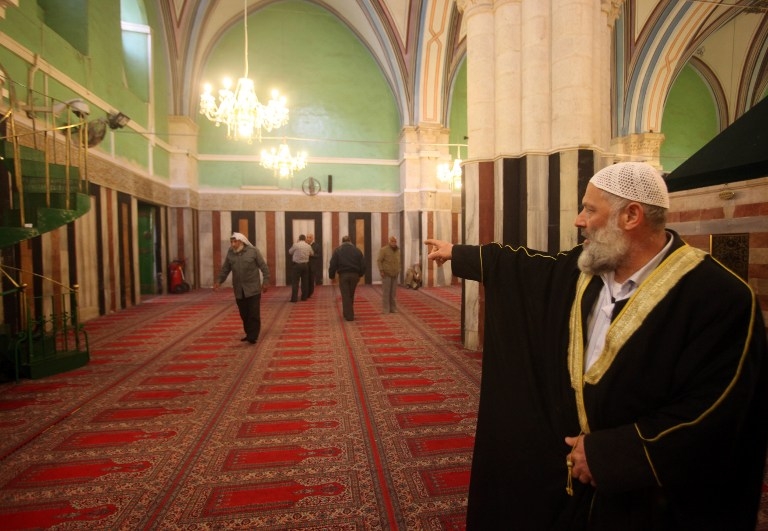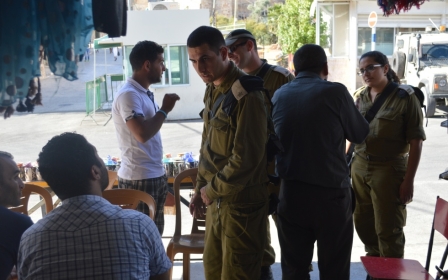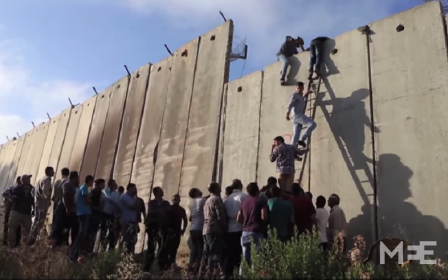Israeli defence minister visits flashpoint Hebron mosque

Surrounded by security forces, Israeli Defence Minister Moshe Yaalon on Tuesday visited the historic Ibrahimi Mosque in the West Bank city of Hebron.
Yaalon stayed in the mosque for 40 minutes, Munther Abu Fielat, the mosque’s Palestinian director, told Anadolu Agency.
“Muslim worshippers, meanwhile, were prevented from entering or leaving," Abu Fielat said.
According to Munther, Israeli authorities plan to close the Ibrahimi Mosque to Muslims on Wednesday and Thursday to allow Israeli settlers to pray at the holy site.
Revered by both Muslims and Jews, the site - which Jews call the Tomb of Patriarchs - is believed to contain the graves of the prophets Abraham, Isaac and Jacob.
Since the 1994 massacre of 29 Palestinian worshippers at the mosque by Israeli settler Baruch Goldstein, Israeli authorities have kept Muslim and Jewish worshippers at the site strictly segregated.
The city of Hebron, in which the mosque is located, is home to roughly 160,000 Palestinian Muslims and about 500 Israeli settlers who live in compounds heavily guarded by Israeli troops.
Al-Aqsa tension
Tension has also continued to mount the Al-Aqsa Mosque complex in Jerusalem, with Jewish hardliners – usually accompanied by Israeli security forces – entering the flashpoint site with increasing frequency.
The violations anger Palestinian Muslims and occasionally lead to violent confrontations.
On Sunday, Jewish hardliners raised Israeli flags outside the gates of the mosque compound, while several others entered the site via the Al-Mugharbeh Gate before meeting resistance from Palestinian worshippers.
Israeli police again allowed dozens of settlers to enter the mosque complex on Tuesday morning, according to eyewitnesses.
Held sacred by both Jews and Muslims, access for Muslims to Al-Aqsa has regularly been limited to women and men over the age of 40 or 50, particularly during times of political tensions.
Meanwhile tourists and Jews have been able to enter the compound on weekdays, escorted by police, and are prohibited from praying or performing religious ceremonies.
Middle East Eye propose une couverture et une analyse indépendantes et incomparables du Moyen-Orient, de l’Afrique du Nord et d’autres régions du monde. Pour en savoir plus sur la reprise de ce contenu et les frais qui s’appliquent, veuillez remplir ce formulaire [en anglais]. Pour en savoir plus sur MEE, cliquez ici [en anglais].




